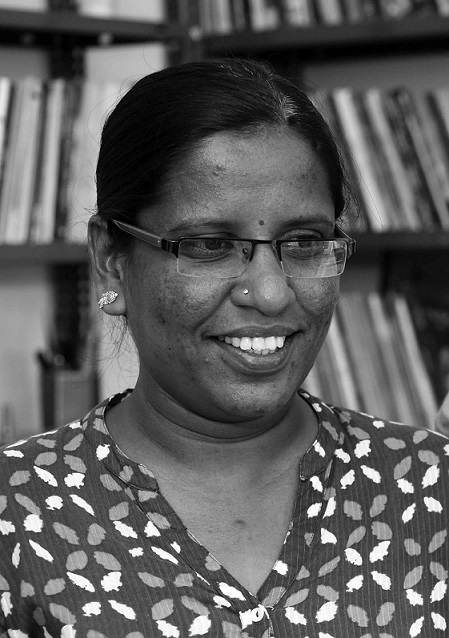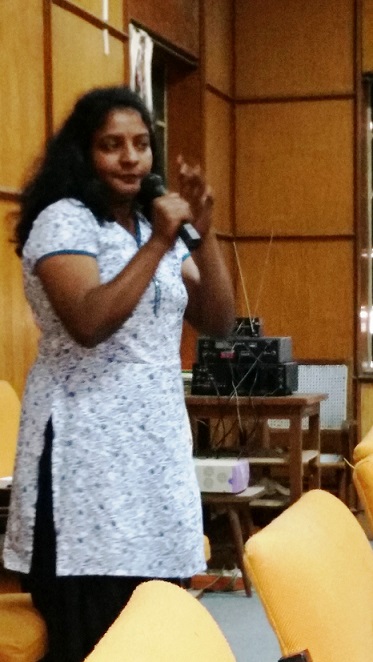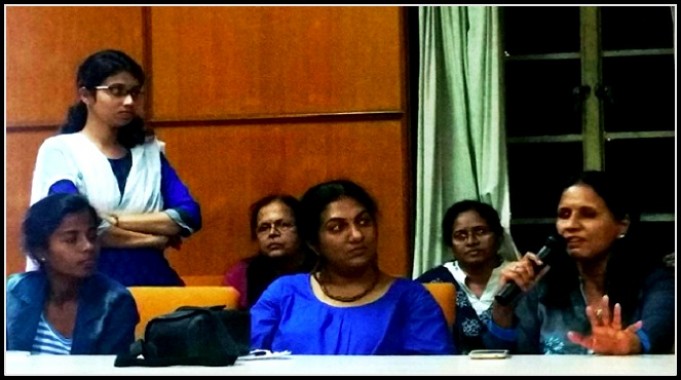Encountering sexism and casteism at work
Dr Kanakdurga Vadlamani speaks of the challenges of working in a Telugu media house.
“Women should behave like women”, snapped an angry male reporter to this journalist and news photographer who regularly jostles for space primarily with male camerapersons. Ironically, I heard these words at a public demonstration against sexual harassment, held in March 2015 at Anekal, near Bangalore. When I objected to his sexist remarks, the reporter rudely complained that I had hindered his view while a few of us were taking photographs of the event. Bystanders who noticed the incident intervened, stating that my actions were unintentional.
Similarly, male photographers at an inter-faith event held in Bangalore in July 2012 told me, “We have come to take pictures of the proceedings here. Being a lady, why are you trying to encroach upon our space?’’ They became silent after I calmly continued to record the event while standing beside them.
“Complain to my organization if you want to. I do not care”, retorted a photographer for a German media agency after I objected to his hitting my left shoulder from behind while we were shooting visuals at a protest by gender and sexual minority persons in Bangalore in 2013. As the photographer refused to apologize and kept talking aggressively, the event organizer requested him to stop. Though the event organizer and I did not report it to his agency, as it seemed to be his first offence, we decided to observe his behaviour closely, as he had been seen at earlier events too.
I have faced other unwelcome remarks, distasteful looks and unwarranted physical contact since became I an independent print and internet journalist over seven years ago. The kind of episodes I have just mentioned probably contribute to the gender imbalance among photojournalists, photographers, filmmakers and videographers.
Occasionally, I wonder whether my response impacted the perpetrators, or anyone else who witnessed or heard of these incidents, positively. What is not in doubt, however, is that opposing such behaviour and publicizing it to the extent possible, enhanced my confidence, determination, and courage to continue my work.
Complain of sexual harassment at your peril
While the above are instances of sexual harassment on the job, this menace also exists in the offices of news organizations, especially in regional television and print media. Dr Kanakadurga Vadlamani, a journalist with 24 years experience in print and television in Chennai and Hyderabad, mentioned how an executive once backed her fight against sexual harassment from a colleague in an earlier job. At a recent discussion on regional media issues organized by the Network of Women in Media (NWMI), she helped unravel the rampant sexism at a Telugu media house owned by a political party, based on information from her peers who preferred to remain unidentified.
The women in this Telugu organization say that complaints of sexual harassment are discouraged. No Prevention of Sexual Harassment or Internal Complaints Committee exists. Employees are not given any awareness about what constitutes sexual harassment, the responsibilities of the organization and managers and executives in preventing or redressing it, the possible penalty and punishment for perpetrators, legal safeguards or other relevant information. Women are expected to accept or ignore sexual harassment and discrimination.
Complainants against harassment often face denial, vilification, downgrading, transfers, reduced benefits and sacking. Shobana, a young reporter from Chennai who faced sexist remarks and advances from older male colleagues in her first job, was advised to remain silent. Shobana feels that some male journalists feel insecure and undervalue women’s work, particularly in the Tamil media. Sadly, such women sometimes also lack family backing.
No fair deal for dalits
Caste discrimination also exists in the Indian media, a fact that is evident from the minimal number of dalit correspondents and editors. Katta Kavitha, a senior sub-editor with Navatelangana, a Telugu daily, told the NWMI debate: “I am a dalit lady hailing from rural Nalgonda district having 12 years experience with the Telugu print and television media in Hyderabad. At my previous organization, I noticed male colleagues with lesser experience than me get better compensation and roles because they are not dalits.

Katta Kavitha, Telugu journalist
“The few dalit male journalists employed in regional media also face severe caste discrimination during assignment allotment, career progress and salary revision. However, they fare better than dalit women since they can socialize with their male managers easily. Fortunately, I have not faced discrimination during my two year stint with my current organization since it is a progressive place”, said Kavitha.
Kavin Malar a Tamil print journalist for eight years and currently chief editor of Tamil women’s magazine Kungumam Thozhi, who faced abuse and threats via social media for her stories on rampant casteism in Tamil Nadu said, “I was disappointed when acquaintances harassed me online. Thankfully, the NWMI released a strong and timely statement supporting me”.

Kavin Malar, Tamil journalist, highlights her harassment online
Women journalists also face discrimination. Manaswini Prabhune, Pune-based editor and publisher of Marathi magazine, Samada, with 15 years experience in the print media said: “In a few Marathi publications, political and crime beats have less women mainly owing to misogyny. Understandably, women prefer desk jobs and writing features”.
Kaumudi Gurjar who worked between 2005 and 2008 at a Marathi daily, was denied performance appraisals as she belonged to an affluent household. She was apparently asked why she needed the job as she did not have to support her family, unlike men. Seasoned Marathi journalist Sandhya Taksale noted that freelance journalists or stringers often receive paltry amounts per story in Marathi publications and are hardly reimbursed for their travel, stay or meal expenses.
In addition to these forms of harassment, many media persons and specifically women and gender and sexual minority persons, undergo religious, linguistic, regional, ethnic, racial, disability and other types of socio-cultural discrimination. These risks worsen during rallies, meetings and other public events where the proceedings are dynamic and where sometimes unanticipated events can occur. Sadly but unsurprisingly, this scenario may continue to persist given the scant socio-cultural diversity among journalists and the regressive mindsets overall.
Resisting negative behaviour, reporting it to authorities, highlighting it widely, obtaining support from reliable individuals and groups (apart from family, friends and trustworthy colleagues) within and outside the media, is essential. Legal remedies are available, true, but they may be cumbersome and ineffective. It is best, therefore, if we try to overcome fear and anger and keep doing our job passionately and ensure that others do so too.
end
